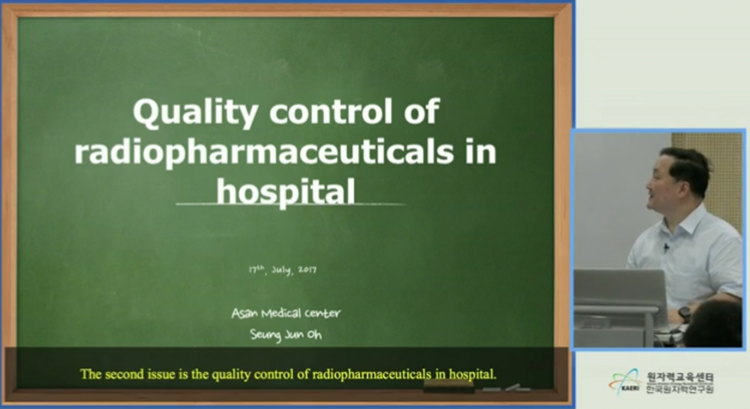Fifty-one participants from 16 countries in Asia and the Pacific took part in an IAEA-organized tutor-guided, e-learning course on diagnostic and therapeutic radioisotopes and radiopharmaceuticals application, in cooperation with the Korea Atomic Energy Research Institute (KAERI) and the World Council on Isotopes (WCI). It was the first time that the IAEA has delivered a fully online training event in the region. The course, delivered in August, provided technical professionals engaged in the radiopharmaceutical field with the theoretical knowledge and practical guidance necessary to manage the production and supply of radiopharmaceuticals.
Participants were trained online across three overarching modules, addressing radiochemistry, radioisotopes and radiopharmaceuticals. The basic concepts which underpin radioactivity detection and measurement, radiation safety, waste management and the production of radioisotopes using both nuclear reactors and cyclotrons were discussed. They also learned about the use of quality management systems, which are essential to ensuring the safe production and supply of products for clinical use.
The e-learning course was organized under a regional technical cooperation project[1] in the Asia and Pacific region, which is promoting the use of nuclear science and technology by strengthening education and training networks. “This course provided a holistic overview of medical radioisotope production and the key aspects related to the production and supply of radiopharmaceutical for clinical use,” said Aruna Korde, Radiopharmaceutical Scientist and IAEA Technical Officer for the ongoing, regional project.
The course consisted of video clips, homework assignments, group discussions and a final exam, which was also administered remotely. Special emphasis was put on interactivity, both between trainees and with their lecturers, to ensure that questions received immediate and comprehensive responses and to facilitate stimulating discussions between professional peers and class tutors across borders and time-zones.






